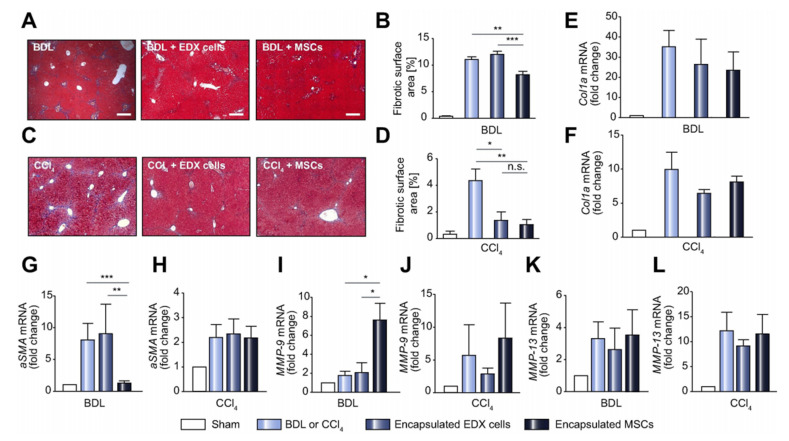Figure 3.
Transplanted microencapsulated mesenchymal stem cells can be used to aid liver fibrosis. (A–D) MSCs were encapsulated in novel alginate-polyethylene glycol microspheres and transplanted into BDL or CCl4-induced mice, then livers were harvested after 15 days or 4 weeks, respectively. (A,C) Morphometric quantification of Masson’s trichrome stained sections was calculated, showing a decrease in fibrotic surface area with encapsulated MSC treatment. Scale bars are 400 μm. (E–L) Real time-PCR analysis was conducted for Col1a, α-SMa, MMP-9, and MMP-13 gene markers. The results reveal reduced expression of collagen type 1 in with encapsulated MSC treatment compared to untreated. Increase in α-SMa, MMP-9, and MMP-13 gene expression was observed in both BDL and CCl4-induced models when treated with encapsulated MSCs compared to encapsulated foreskin fibroblasts. MMP-9 is known to be overexpressed in cell population such as neutrophils and lymphocytes, which can curb accumulation of extracellular matrix and thus reduce liver fibrosis pathology. Data presented as fold change with respect to housekeeping genes and expressed as mean value ± SEM. * p < 0.05, ** p < 0.01, *** p < 0.001. Reprinted with permissions from Meier et al. [78].

